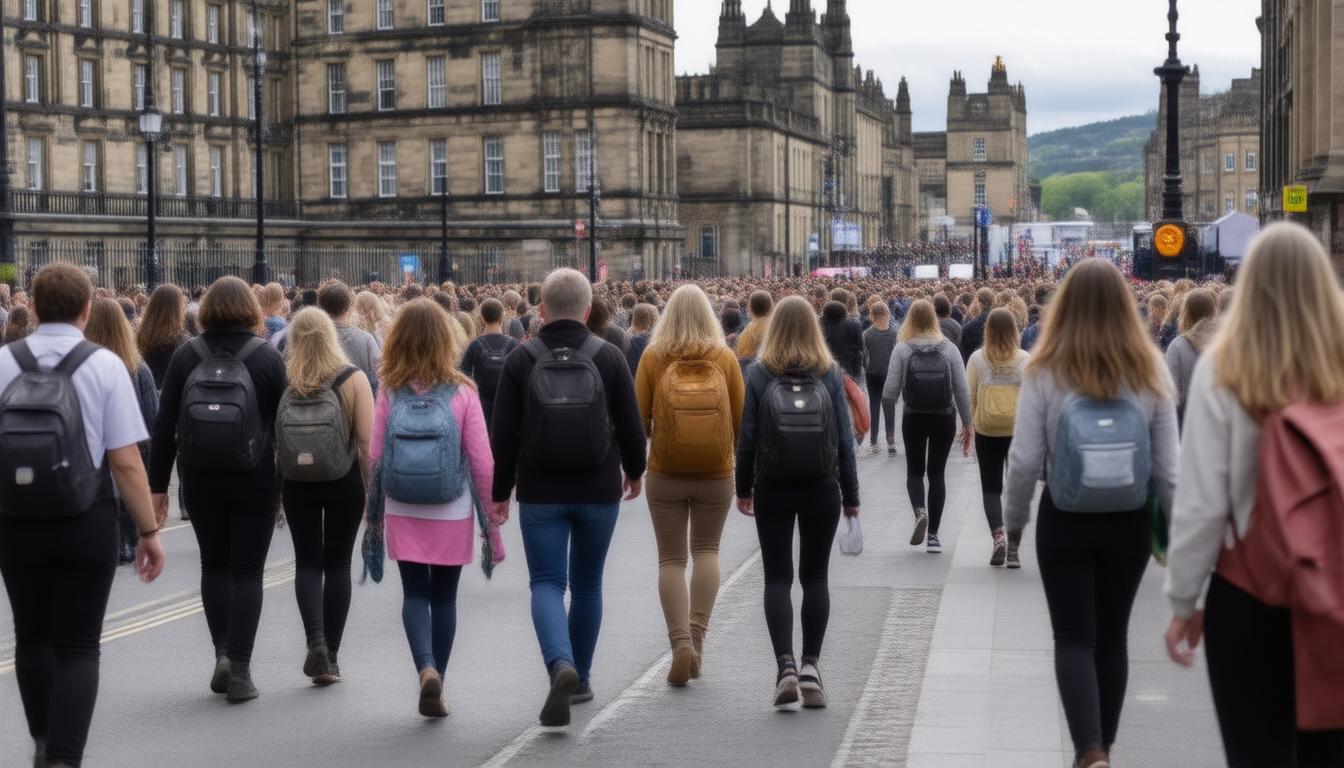In a bid to tackle the escalating housing crisis in the Scottish capital, the City of Edinburgh Council has put forth an urgent plan to relocate over 700 homeless residents currently living in unlicensed temporary accommodations. This proactive measure comes amid rising concerns regarding health, safety, and legal compliance within the housing sector. The decision is particularly significant as it highlights the profound effects of the Covid-19 pandemic on the demographic of homeless individuals in Edinburgh. As the city grapples with more than 5,000 households in temporary accommodations, the council is prioritising the relocation of individuals residing in 28 properties that do not satisfy licensing requirements as Houses in Multiple Occupancy (HMOs), amid fears of potential health hazards and legal repercussions for unqualified landlords.
Key Takeaways
- Edinburgh Council is relocating over 700 homeless individuals from unlicensed accommodations to ensure safety and compliance with housing regulations.
- The surge in temporary housing demands since the Covid pandemic has exacerbated the housing crisis, impacting over 5,000 households.
- To focus on this urgent relocation, the council has temporarily suspended new housing allocations and non-urgent repairs until January.
Background on Edinburgh’s Housing Crisis
In response to ongoing housing challenges, the City of Edinburgh Council has unanimously voted to expedite the relocation of over 700 homeless individuals currently living in unlicensed temporary accommodations, including hotels and bed-and-breakfasts, by the end of this month. This decision stems from a dramatic increase in demand for temporary housing following the Covid-19 pandemic, which necessitated emergency measures to contain the virus (Scottish Government, 2024). At present, many of these individuals are housed in 28 properties that do not meet the regulatory standards for Houses in Multiple Occupancy (HMOs), creating significant concerns regarding their health and safety.
In light of legal counsel advising against funding non-compliant accommodations, the council has decided to temporarily halt new applications for social housing and non-urgent repairs. This strategic pause allows the local authority to focus resources on ensuring the safe transition of these residents into licensed housing (Edinburgh Evening News, 2024). New housing allocations will also be suspended until January, with exceptions made for those with disabilities and patients awaiting discharge from hospitals, showcasing the council’s commitment to prioritizing lawful and safe living environments.
The scale of the crisis is alarming; the number of households in temporary accommodation has escalated from approximately 3,570 in 2020 to over 5,000 in 2024 (BBC News, 2024). This significant rise underscores the urgency of the council’s actions, which aim to combat the potential legal ramifications associated with operating in non-compliant settings. The council’s focus on public health and housing safety is critical as it works to relocate vulnerable individuals living in conditions deemed unsafe by current regulations. By prioritizing their move before December, the council hopes not only to comply with legal standards but to restore dignity and safety to those affected.
Council’s Immediate Action Plan for Relocation
Under the immediate action plan unveiled by the City of Edinburgh Council, an intensive review and relocation strategy is being implemented to address the crisis surrounding homeless individuals in unlicensed temporary accommodations. The council’s decision to suspend new housing allocations until January, apart from certain exemptions, serves as a temporary measure aimed at maximizing available resources and focusing on the urgent needs of displaced residents. Experts have highlighted the critical nature of this initiative, emphasizing the necessity for immediate action to comply with health and safety standards that have historically been overlooked in the rush to provide emergency housing solutions (Crisis Scotland, 2024). As the local authority navigates this precarious situation, it is also working closely with community organizations to ensure a smooth transition for affected individuals, aiming to provide the necessary support to fully reintegrate them into stable living conditions. This collaborative effort marks a significant step towards addressing the escalating homelessness crisis in Edinburgh and ensuring a safer environment for all residents.





